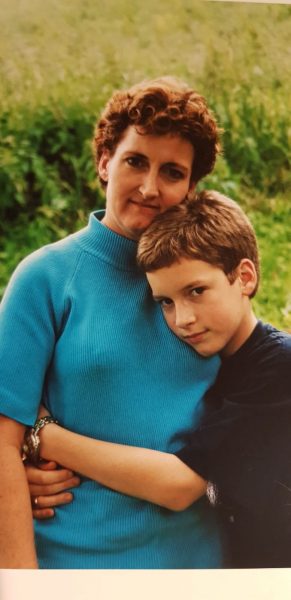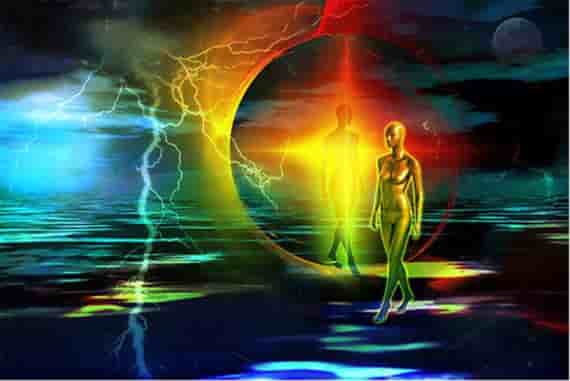There is little I can say as a preamble except: Here are amazing answers for an amazing woman!
Skoshi’s Questions
I’m 63 and live in Spotsylvania. I have many heart birth defects, which I assume was planned and has to do with karma. Many years ago my cousins spent a lot of time and effort putting together our family history and they could find out nothing about Grandmother Stanley. (I also tried unsuccessfully later.) I don’t have her date or place of birth or death. Grandmother Stanley was my grandmother’s grandmother, and she was Native American, but that’s all we know about her. I assume Stanley was her last name, but I don’t know if it was her married name or the name her family was given by white settlers. My grandmother was born around 1900, so her grandmother must have been born around 1840, but that’s just a wild guess. I’m not surprised my cousins couldn’t find anything about her. I doubt very much that she was born in a hospital or had a birth certificate. I contacted Native Americans and researchers collecting Native DNA to see if they could test my blood to tell me which tribe I descended from, but they said they could not provide information that specific.
Whenever we asked our grandmother what tribe Grandmother Stanley was from, she said it used to be a shameful thing to have a Native American in the family, so it was never talked about (back when my grandmother was growing up, they never talked to children in any event!). I’ve always felt a connection with Grandmother Stanley. It’s inexplicable. I had a session with Sylvia Browne in 2004, and she said Grandmother Stanley was Sioux and a shaman. That seems very strange to me because to my knowledge my grandmother (Emma Rooney Sutter) and all my relatives were from Long Island. I don’t think there were Sioux on L.I. I also think of female shamans as very spiritually evolved, and can’t understand why she’d marry a white man.
My grandmother, obviously, was of Irish descent. In America and England back in the 1800s and 1900s, the Irish were considered to be lower class, dirty, drunks and were persecuted along with blacks and Native Americans. The family was actually very respectable, lithographers I understand.
Sorry for the long explanation, but I figured you’d better know some of the background. I’d like to know whatever Erik can find out about Grandmother Stanley. What tribe was she from? Was she a shaman? Why did she marry a white man? Where was she born? Did she or her family move to L.I. because of persecution? Did we have a connection when she was “alive”.
Both of my grandmothers, Emma Rooney Sutter and Catherine Bubb Neuburger, were wonderful, kind, generous women, and I’d like to send them my love. Any messages from my father or mother would be greatly appreciated. My mother (Phyllis Sutter Neuburger) was a very cruel woman who told lies about all her family members, wrecking havoc with my father, brother and me and causing her sisters to disown me and my brother. I’d like to know if she has a clue now that she’s discarnate as to the damage she did and what she has to say about it. She was 77 when she died here in Fredericksburg, VA on 8/4/05. She was a terrible racist to boot. It was fortunate for me that my father, Edward (died at the age of 58 on 7/11/81 in Oceanside, LI) considered everyone equal and I admired and imitated him. Was he standing at the foot of my bed after my last open heart surgery 2/26/04 (would have been his birthday) as I thought?
Channeling Transcript
Me: Okay, let’s see, the next one is…Oh, yeah! This lady is amazing! She’s so wise. Her name is Catherine, but she often goes by the name Cate. I know her by her screen name, Skoshi. Anyway, she’s 63 and lives in Spotsylvania, uh—I don’t know where that is, you know? Hm, what state is that in? Maybe New York? Well, she’s had a lot of heart defects and, as a result, has had to undergo many heart surgeries, has had some near death experiences. A long time ago, her cousins were trying to put together a family tree. Grandmother Stanley was her grandmother’s grandmother. All they know is that she was Native American. I think she was born around 1840. Can you contact Grandmother Stanley and ask her about her past?
Jamie (chuckling): One thing I could hear clearly is, “You said around 1840; it was 1843!”
Me: Oh, okay! Was it Grandmother Stanley correcting us?
Jamie: Yeah. I guess that would make her, what, three years younger than what we thought she was.
Erik: When you talk about the name, Stanley, it was given to her. That was not the name she was born with, and it wasn’t a married name.
Me: Oh, okay! I was going to ask you that! So what tribe is she from?
Erik: When you talk about tribes, it’s still in the north. It’s not in the southern states. Michigan, south Michigan, southeast Michigan.
Me: Um hm.
Erik: Is that where the Sioux were?
Me: It could be. I’m not sure.
Erik: Well, that’s what I’m hearing.
Me: Well, that’s what she got in a reading with Sylvia Browne. Was she anything special in that tribe like a shaman?
Erik: She says no, because she was a woman, but she knew quite a bit about plant life, about how to identify it, use it, eat it, grow it. She knew less about animals, you know, how to hunt, kill, skin, cook, things like that. She was more into plant life and speaking to the plants.
Me: Okay. So why does Cate have such a connection with her?
Erik; I love this. She says, “Because we have a bit of the same soul, a bit of the same purpose.” And they’re platonic soul mates, too.
Me: And what purpose is that?
Erik: To bring consciousness to a sleeping society.
Me: Oh!! Okay, so is she a guide for Cate?
Erik: Yes. And they’ve had many lives together as friends, mother/daughter, sisters, always as females. She says there’s much more power and creativity when you’re a female.
Me: Aw! Well, heck, yeah!
Jamie giggles in agreement.
Me: Why did Cate have to have so many heart problems and near death experiences?
Erik: To elevate her own consciousness so she could then elevate the consciousness of others.
Me: Okay.
Erik: Grandmother Stanley says you’re already channeling all this, Mom. You’re using logic to put it into words in your mind, but you’re channeling this information before you even get it.
Me: Oh, that feels like it, yeah.
Erik: I like the way she speaks. Very calm and really simple. Nothing is complex with her. You know how women’s voices are more high pitched? Hers is lower and it’s whole, like it comes from her whole cavity in her mouth.
Me: Wow! Now, does she have any messages for Cate?
Jamie (giggling as she talks to Grandmother Stanley): Really, that’s it?
Me: What’d she say?
Jamie: I hear, “Let’s party!” Maybe it means something more to Cate.
Me: Too funny! Let’s see, I think we have time for one more person. Let’s see. Oh, wait, I have a couple more questions from Cate. Uh, why did she marry a white man?
Erik: Two reasons: One, she fell in love with him and two, she knew she would be safe.
Me: Okay. Was she born in southern Michigan?
Erik: In that area, yes.
Me: Okay. Any connection between her and Cate while she was alive?
Erik: Huh?
Me: Oh, I mean, in that lifetime in the late 1800s, was Cate alive there with her in some way?
Erik: Yeah, they were female friends. It looks like they were about the same age, but Cate was Caucasian. Very close friends. Cate didn’t care about the whole race thing.
Me: Okay, that sounds like Cate. So why did they move to Long Island?
Erik: The family had to. It was to keep from getting persecuted. There was a lot of racial tensions and hate and fear toward the Native Americans where she was.
Me: Gosh, why are people so mean? Okay, she also wants to send her love to both her grandmothers, Emma and Katherine. They were both amazing, kind and generous women, apparently.
Erik: Done.
Me: She says any messages from her mother and father would be great. Her mother’s name is Phyllis and her father’s name is—
Jamie (laughing): Holy cow! I’m looking at Erik. He puts his hands up and says, “I’m not touching this one; you gotta talk directly with Phyllis. The mom is more of a character. Mom, you would just flip over her. You’d write a whole book about her.”
Me: Oh my God, is it a bad thing or a good thing.
Erik; Totally a bad thing. She is completely selfish. She admits that now. Okay, so she admits that she did everything out of selfish reasons.
Me: Yeah, well Cate did say she was cruel…a racist.
Erik: She played the victim for attention. You know that, “Oh how horrible for you! How do you every handle it?” And she would just make up things to keep that going cuz even after one problem healed, she—
Me: She liked to create drama, huh?
Erik: Yes, because that’s the energy she knew how to feel good and accepted. That was her way to get praise. She learned that from her father’s mom.
Me: Wow. Okay, one last question: Her father, Edward, died at the age of 58 in Oceanside, Long Island. He considered everyone equal, unlike Phyllis. She wants to know if he was standing at the foot of her bed after her last open heart surgery on his birthday in 2004.
Erik: Yes.
Me: Any messages from him?
Erik: He’s actually sorry that you couldn’t sing “Happy Birthday!” He was really just there to make sure she got through her surgery.
Me: Aw, how sweet!
Skoshi’s Response
Wow. It will take a lot to digest that. I’m going to do a lot of mulling things over.
My father was SUCH a big-hearted man. A real blessing considering my mother was so closed off and phony. A lot of my studying about human development was trying to figure out exactly what had gone wrong in her head. She got colon cancer at one point, and I had to go to a therapist because I figured I’d have to take care of her and wouldn’t be able to stand such close contact without being positively ill from abuse.
I really appreciate this Erik and Elisa. I look forward to reading the rest. Can’t blame Erik at ALL for not wanting to get closer to her. She was SO toxic. I can remember her picking fights with my father about race and homosexuality…his heart was so expansive and she was so full of hate. – XOXO to you both



